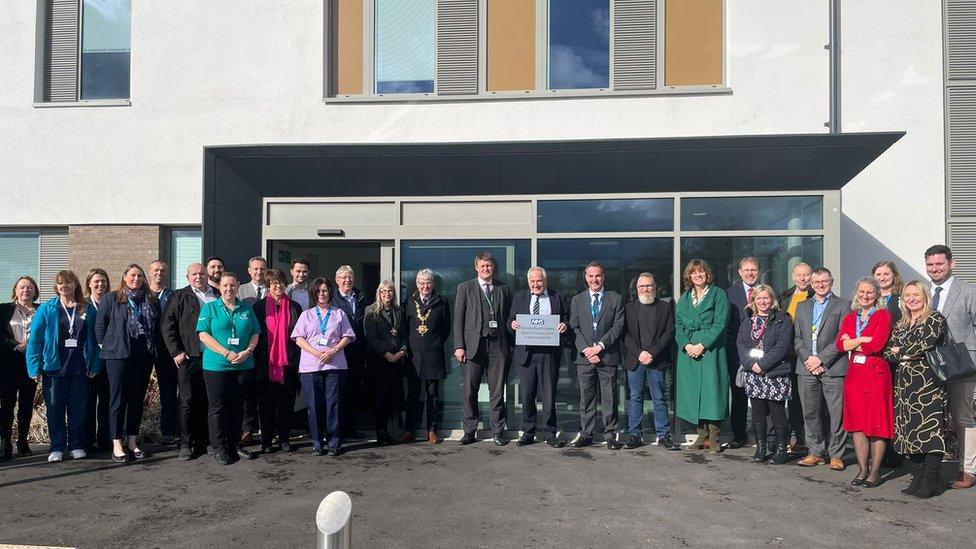Mother covers 144 hours of care a week for disabled son
- Published
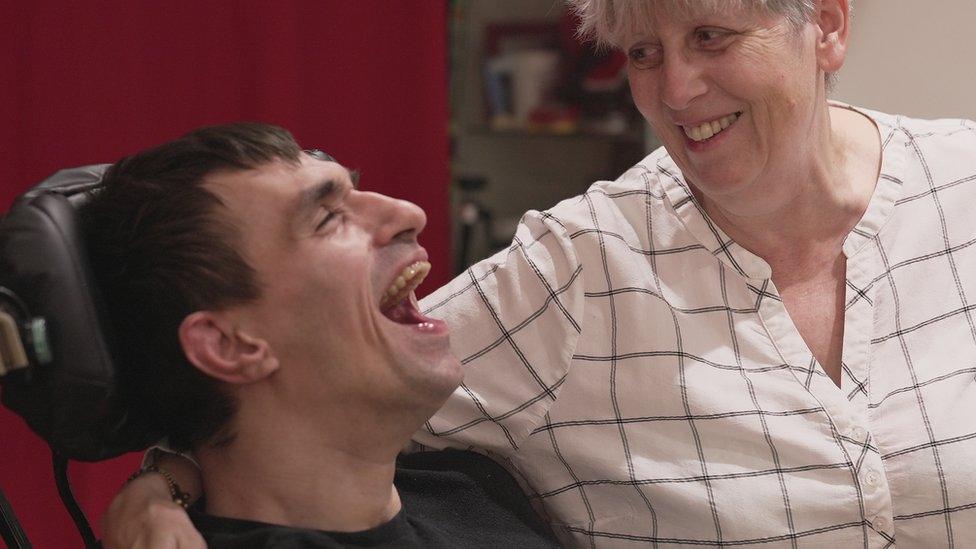
John's stepmother Suzanne, said sometimes she is "so tired" she cannot get up the stairs
A Wiltshire mother who has to cover 144 hours of care for her disabled son each week, says the sector is in crisis.
Staff shortages of home carers have more than doubled in the past decade, with untrained family members regularly forced to fill the gap.
Leading disability charity Sense is warning the unmet need is leaving the system on a "cliff edge".
For six months, BBC News has seen the system through the eyes of a family who are desperate for more carers .
From the moment 39-year-old John Morrison wakes, he is completely dependent on others to keep him alive.
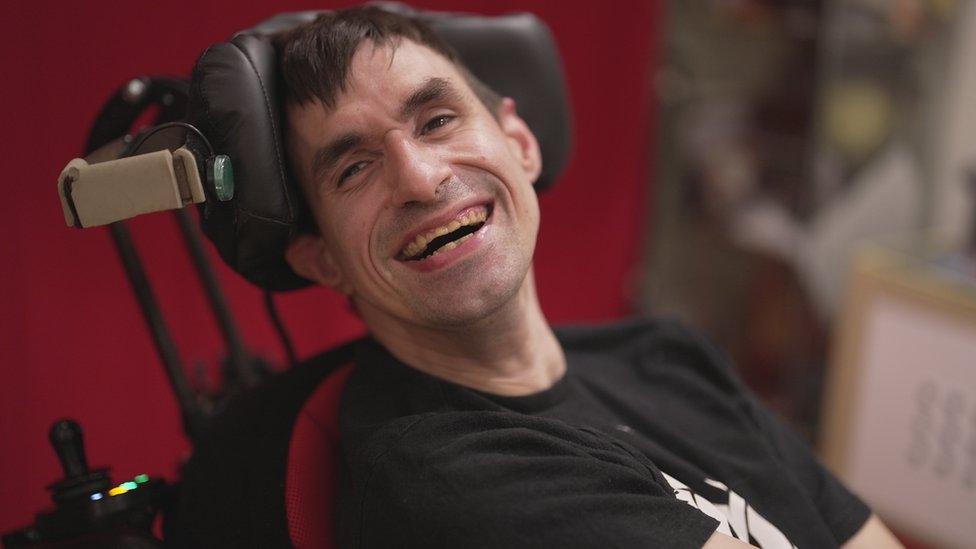
John Morrison has a severe form of cerebral palsy and is completely dependent on others to keep him alive
He is lifted out of bed and into his wheelchair using a mechanical hoist. He cannot brush his teeth, wash or eat his breakfast without help.
Brain damaged at birth, he finds it hard to speak and at any point can choke or have deadly seizures.
But he refuses to let his complex disabilities define him, says his stepmother Suzanne.
"John is full of life, full of laughter and he deals with everything with good humour," she said.
'It is getting dangerous'
John is entitled to specialist 24/7 care worth £8,000 a week at his home in Wiltshire, funded by the NHS.
But despite years of searching, his family say they cannot find enough skilled carers to fill the rota.
"There is a care crisis in this country, you can't get the care that is needed," said Suzanne.
"People are getting so desperate they're advertising on Facebook and you don't know who you're getting, you don't know if they've got any qualifications.
"It is getting dangerous."
According to UK data company Statisa, the average working week in the UK, external in 2023 is 36 hours.
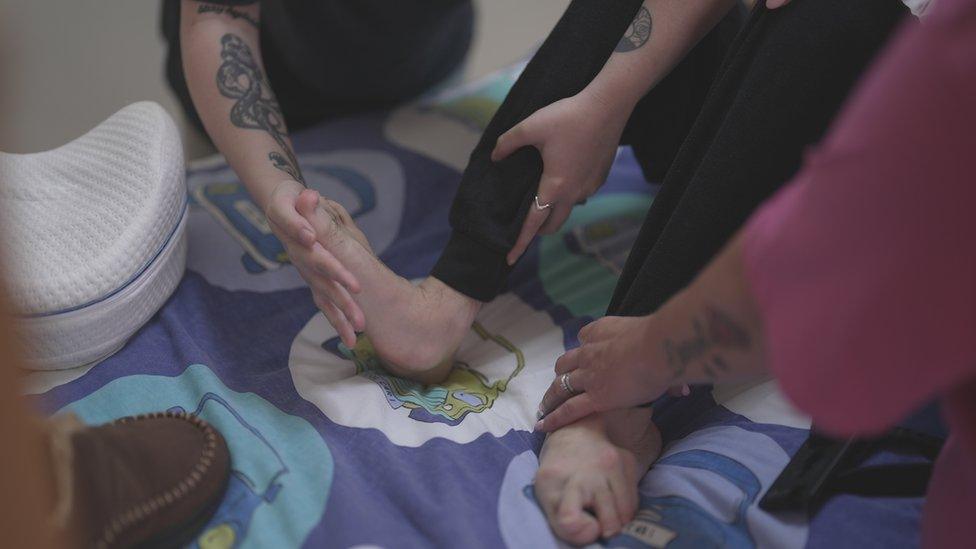
John's family said it cannot find enough skilled carers to fill his care rota despite years of searching
Suzanne, who is 64 and struggles with arthritis herself as well as needing a cataract operation, is being forced to fill the large gaps with an estimated 144 hours of care a week. This includes early mornings, nights and weekends.
"How long can I keep going? I don't know," she told BBC Radio Wiltshire through tears. "Everyday I exist. I exist so he lives.
"Sometimes the dogs and I sit on the stairs because I can't get up the stairs because I'm just so tired. Then I get upstairs and I can't get to sleep."
Suzanne's husband Malcolm used to share the load, but during the coronavirus pandemic part of his leg was amputated after becoming infected.
He said: "I was looking after John too long and I never really got the right care and then it was too late. It's very difficult."
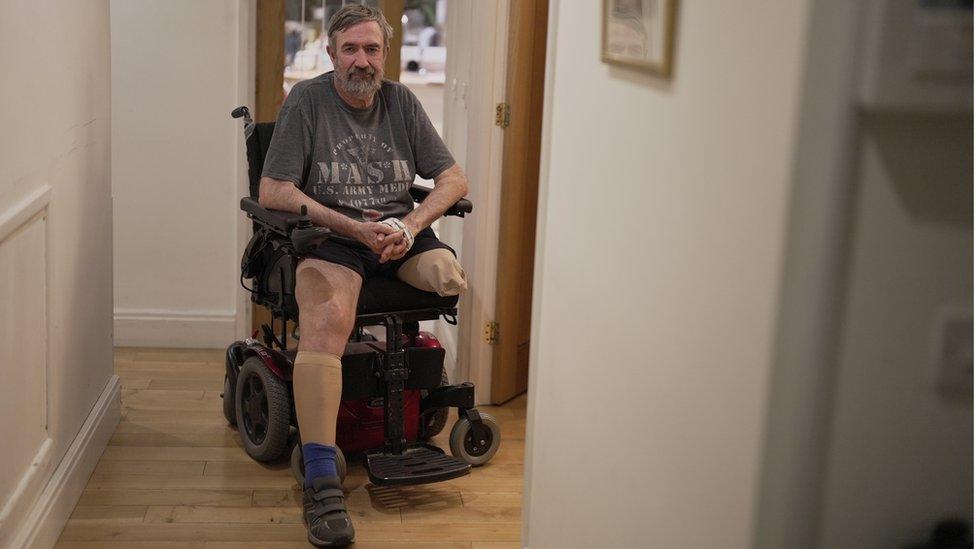
Suzanne's husband Malcolm used to help with the care, but in 2021 part of his leg was amputated
There is a chronic shortage of carers with 152,000 adult social care posts to fill in England between 2022/23, according to figures from Skills for Care, external, an organisation which supports care sector employers.
It is home carers, known as domiciliary carers, that are desperately needed most.
The South West, where John lives, has higher vacancy rates than England as a whole with a domiciliary care vacancy rate of 13.5%.
The Government declined a BBC request for an interview but told us that the number of home carers increased by two per cent last year in England.
'Zero-hours contracts'
At 9am, the mood in the Morrison house lightens. John's carer Anna has arrived.
But only 17 per cent of the care that he is entitled to is provided by trained carers like her.
Anna has worked weekdays as a carer for three years.
She can provide the specialist care for John's complex needs and starts the day with some stretches to reduce the tension and stiffness in his body, which cause him constant pain.
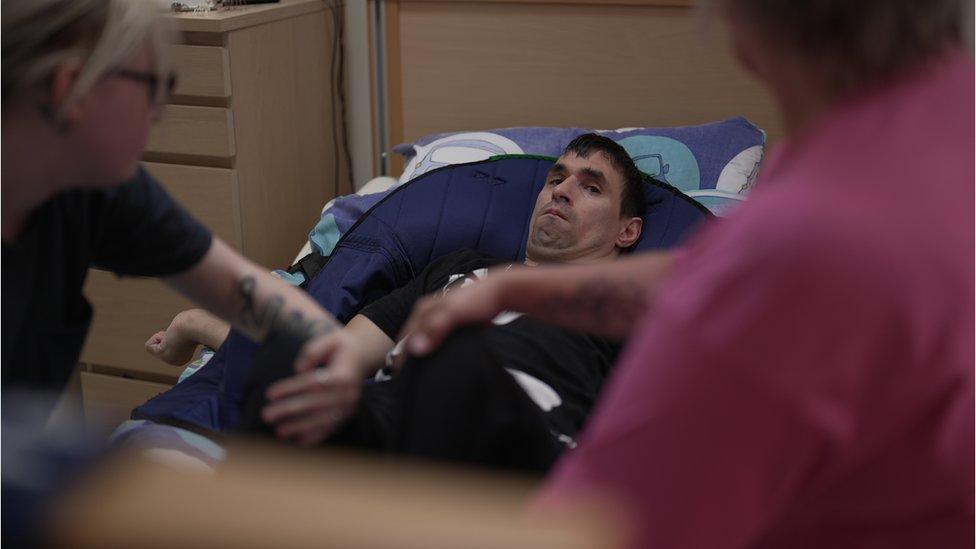
Only 17% of the care that John is entitled to is provided by trained carers
"It's not a hard job if it's in you to do it. I love it," she said beaming, as she makes a nutritional shake for John. "In this kind of care, you do create bonds.
"One of the problems is zero-hours contracts. People have bills to pay" she said.
"You can go to a pub or a shop and earn more money.
"I'm given respect here, but on the whole carers aren't given the respect they deserve."
'On a cliff edge'
Leading disability charity Sense estimates there are 1.6 million people with complex disabilities in the UK and says the Morrisons' experiences are too common.
"We've got a perfect storm of increased demand, unmet need, carers exhausted, and disabled people not getting the support that they need," says Richard Kramer, the charity's CEO.
"I think we're beyond a care crisis, we're on the cliff edge right now."
While Anna and her daughter Lucy - also a carer - are at the house, Suzanne uses the time to manage the NHS money John is entitled to.
Taking responsibility of his care budget means more freedom but more pressure, as she has to arrange wages and holiday pay for Anna and Lucy as well as search for more carers to cover the other shifts.
In a statement, Bath and North East Somerset, Swindon and Wiltshire Integrated Care Board, said: "[The care board] is working in partnership with local authorities, health and social care organisations across our area to recruit new carers into the profession and to strengthen the skills of our existing workforce to deliver high quality care for everyone who needs it.
"We also provide information and support to help recipients, their carers and families manage their personal health budgets to ensure the best outcomes."
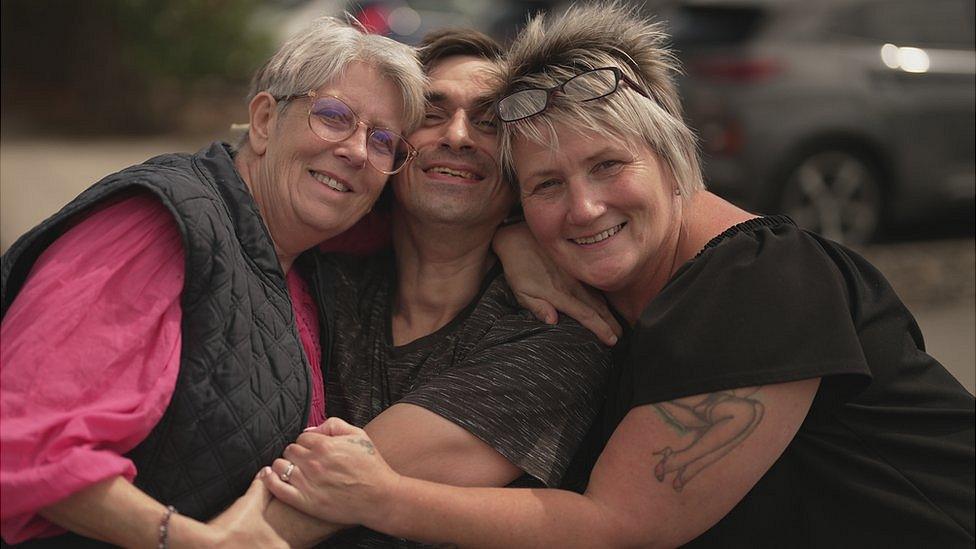
Suzanne (left) said the thought of anything happening to Anna one of John's carers (right) scares her to death
Suzanne says she is desperate to find a way to future-proof John's care, aware that the current situation is unsustainable.
She describes the mother and daughter team as "her angels" as she does not know what she would do without them.
"The thought of something happening to Anna or Lucy or myself sort of scares me to death," she said.
Her dream, she says, is finding the right care team who could live with John while she and Malcolm are still alive so he can slowly adjust to life without them.
"I have to get John to a position where he is protected and then I could lay my head down and go to sleep because my job would be done."
Fighting For Our Son's Care is available to watch on BBC iPlayer and on BBC Points West on Wednesday 13 December.

Follow BBC West on Facebook, external, Twitter, external and Instagram, external. Send your story ideas to: bristol@bbc.co.uk , external
Related topics
- Published28 June 2023
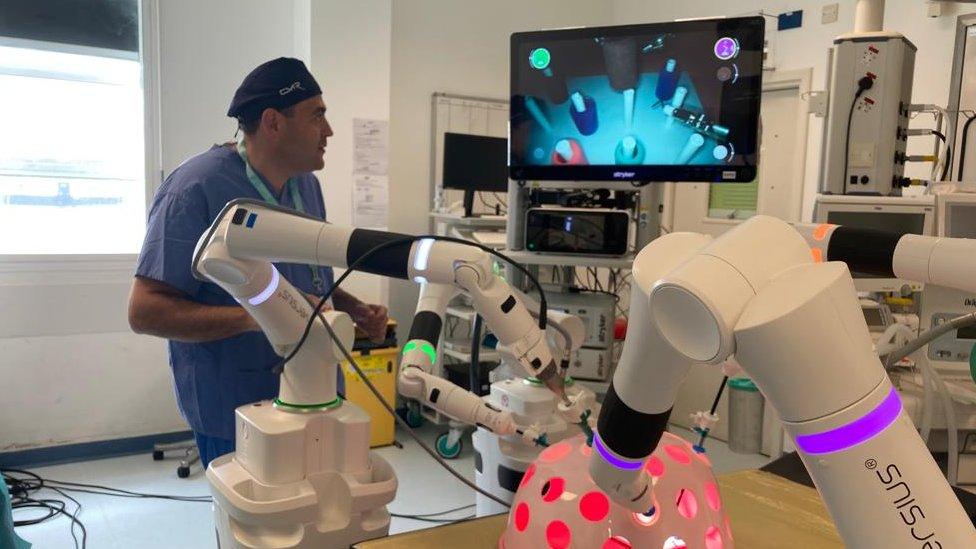
- Published23 February 2023
